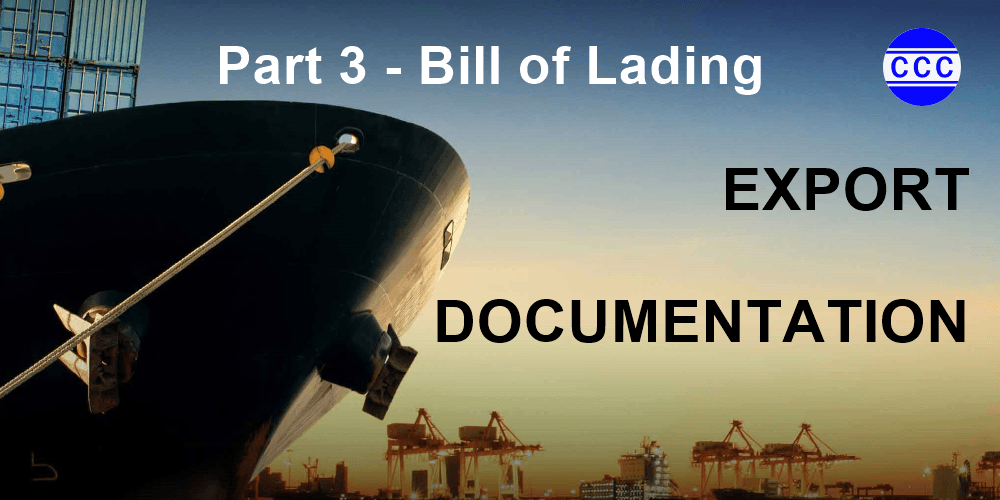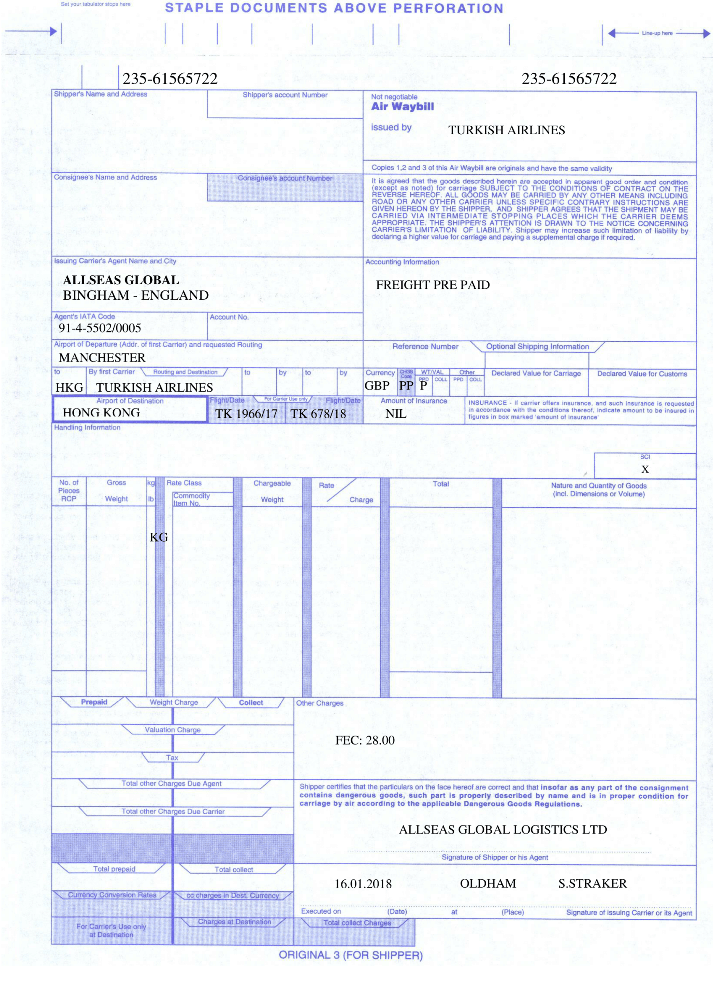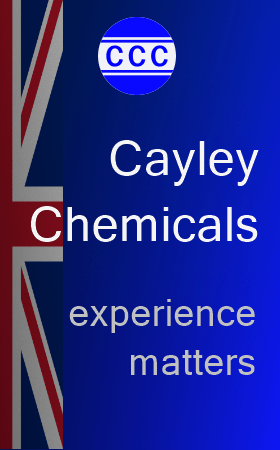Export Documentation: Part 3 – Bill of Lading & Air Waybill
Export documentation is critical. It needs to very accurate and comprehensive and to meet the full requirements of the importing country. Previously we have examined:
This month we will be looking at the Ocean Bill of Lading (BL or BoL) and the Air Waybill (AWB).Bill of Lading
There are many articles on the internet on the Bill of Lading. I have restricted my comments to what I consider the important points gained from my experience of exporting, mostly in full container loads (Fcls), to the developing world for the past 30 years.
All Sea shipments require a Bill of Lading. A BL is a receipt for the goods by the shipping line. Of all the export shipping documents the BL is the most important because an original Ocean BL is ownership of the goods i.e. Negotiable.
There are 4 types of BL:
- Original Ocean – Negotiable. This is the main type of BL used for Fcls and this article is mainly about this type of Bill of Lading.
- Copy Ocean – Non-negotiable
- Combined BL or consolidated BL or forwarders BL – used for LCL(Less than Container Load) shipments
- Express BL – used where importers customs allow – no security so be careful
BLs are always issued in 3 originals (3/3). Most developing world customs require 2 originals. Our recommendation is to hold back one original in the exporters file.
The shipper/exporter must give clear instructions to the forwarder/shipping line because all the details must satisfy the importing countries customs and must also comply with any import licence and/or letter of credit.
Shipper: If the exporter is paying for the freight then the exporter will be the shipper. If the exporter is a trader and buying CFR then the shipper can either be the exporter or the supplier to the exporter that is actually paying for the freight. Sometimes when a trader buys CFR the company paying for the freight will insist on being shown on the BL as the shipper which is acceptable unless a LC says otherwise.
Consignee: Usually show the importer/customer as the consignee. The only problem with that is for traders buying CFR then they may not want their supplier to know the name of their customer in which case consign the goods ‘to Order’ and then the shipper must stamp & sign the back of the original BL – thereby releasing it to whoever holds the original. When the importer is shown as the consignee – show the full address and contact.
Notify: If security is not an issue then show the importer with contact name and phone number. If security is an issue then show the importers clearing agent with contact and phone number
Shipping Marks: Keep simple – these only show on the BL and are not the same as what must show on the actual packing
Description: Must be precise. Show both the Brand name and International Customs name, together with nett packing. The gross weight must also be shown and the packing list must match.
BL to state:
- Freight Prepaid unless the selling terms are FOB in which case the BL will state freight collect.
- Shipped on Board
- Anything special as required by the importing country / importer e.g. HS code, Import Licence, Demurrage free days
As with all documents, ask for a draft to approve before printing off the originals. In many Developed countries Express BLs are acceptable to clear customs and even copies or email BLs are acceptable.
Air Waybill
All Air shipments require an Air Waybill (AWB) – it is a receipt for the goods by the airline.
Information required is similar to a BL with one major difference and that is that all AWBs are acceptable to clear customs, even email AWBs. An original AWB must always accompany the goods and if the exporter is paying /organising the airfreight then all export documents should accompany the goods. However, if the exporter is buying CFR then only the AWB should go with the goods and all other documents should be emailed to the importer. Clearing airfreight goods can be done in all counties with copy documents or email documents but the Invoice, Packing List etc. must be stamped and signed.
Airlines always insist on showing the freight charges on the AWB so our recommendation is to accept IATA (International Air Transport Association) freight charges showing on the AWB just so long as it’s higher than the freight cost on the Invoice.
++++++++++++++++++++++++++
To see our full range of regularly supplied chemical raw materials, please click the ‘Products’ button below and scan through our products or search for a particular product.
Cayley Chemicals can supply a very broad range of products at very competitive prices to virtually anywhere in the world. Get in touch with us now with your name, email address, product name, specification, quantity, destination and any special requirements and we will get back to you very quickly.




